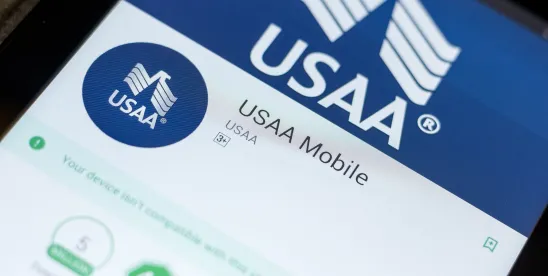This case [1] addresses declaratory judgments of non-infringement in relation to subject-matter jurisdiction and the district court’s refusal to exercise discretionary jurisdiction.
Background
In June 2020, Mitek Systems, Inc. (“Mitek”) filed a declaratory judgment action in the Eastern District of Texas, asking the court to declare that its MiSnap software did not infringe United Services Automobile Association’s (“USAA”) U.S. Patents Nos. 8,699,779; 9,336,517; 9,818,090; and 8,977,571. MiSnap is a software development kit used by banks to capture check images in their mobile apps. Mitek pointed to USAA’s campaign of letters and its suit against Wells Fargo as evidence of a credible threat of infringement or indemnity claims.
The district court dismissed the declaratory judgment case for lack of subject-matter jurisdiction, finding no actual controversy, and declined to exercise its discretion. On first appeal, the Federal Circuit vacated both rulings and remanded for “finer parsing” of the facts—explicitly instructing the district court to categorize any 12(b)(1) challenge as facial or factual and to revisit Mitek’s two bases for standing: threat of direct/indirect infringement and potential indemnity liability.
On remand, after extensive briefing and fact finding, the district court again concluded that Mitek had no reasonable apprehension of suit—MiSnap did not itself practice all claim elements, USAA never pointed to Mitek documentation showing inducement, and MiSnap had substantial non-infringing uses. It also held that no indemnity agreements exposed Mitek to likely liability. Even if jurisdiction existed, the court would decline declaratory relief, urging Mitek instead to intervene in any future USAA suit against a customer. Mitek timely appealed.
Issue(s)
Whether the district court erred in finding no subject-matter jurisdiction over Mitek’s declaratory judgment action and whether it abused its discretion in declining to exercise jurisdiction.
Holding(s)
The Federal Circuit held that Mitek failed to establish a case or controversy, as it lacked a reasonable apprehension of infringement and no real risk of indemnity liability. The Federal Circuit also held that the district court did not abuse its discretion in refusing to hear the case, given better remedies available through intervention.
Reasoning
For infringement, the Federal Circuit noted that MiSnap—a toolkit, not a complete banking app—cannot satisfy every element of USAA’s asserted claims, and USAA never alleged otherwise. On inducement, nothing in USAA’s claim charts or MiSnap documentation showed affirmative steps by Mitek to encourage full claim performance. For contributory infringement, the record confirmed that MiSnap had substantial non-infringing uses and USAA never argued otherwise. After Mitek filed suit, USAA settled its Wells Fargo case, further undermining any “ongoing” controversy.
On indemnity, the Federal Circuit reviewed the actual contracts and found carve-outs shielding Mitek from likely payment obligations. Mitek could not simply point to the existence of indemnity clauses; it had to show a reasonable potential for liability, which it could not.
Finally, even assuming jurisdiction, the Federal Circuit approved the district court’s discretionary decision. Intervention in an actual infringement suit against a bank customer would allow full airing of factual disputes—customer-specific use, customization, and knowledge—that a standalone declaratory judgment action could not resolve.
In conclusion, Mitek Systems v. USAA underscores the high bar for patent declaratory judgment jurisdiction. Suppliers must show a genuine, immediate threat of suit or clear indemnity exposure, not merely fear or customer-targeted enforcement. District courts retain broad discretion to decline declaratory relief when better avenues—such as intervention—exist. Parties facing indirect or contributory claims should ensure their products, documentation, and indemnity provisions are carefully aligned to avoid such jurisdictional roadblocks.
Footnotes
[1] Mitek Systems, Inc. v. United Services Automobile Association, 2023-1687 (Fed. Cir., June 12, 2025)



 />i
/>i

